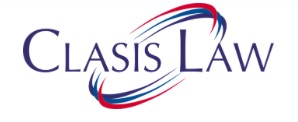26 June, 2018
Section 29A of the Insolvency and Bankruptcy Code, 2016 (the “Code”) was promulgated on November 23, 2017 vide the Insolvency and Bankruptcy (Amendment) Ordinance, 2017 (the “IBC Ordinance”). Subsequently, on January 18, 2018, the aforementioned Ordinance took the shape of Insolvency and Bankruptcy Amendment Act, 2017 (the “IBC Amendment Act”). Section 1 (2) of the IBC Amendment Act clarified that the said amended Act would come into force on November 23, 2017.
Section 29A as introduced by the IBC Amendment Act, inter alia provides that a person shall not be eligible to submit a resolution plan, if such person is a connected person not eligible under clauses a) to i) as set out therein.
A “connected person” is a person who is:
(a) A promoter or in the management or control of the resolution applicant;
(b) A person who shall be the promoter or in management or control of the business of the corporate debtor during the implementation of the resolution plan;
(c) A holding company, subsidiary company, associate company or related party of a promoter or a proposed promoter during the implementation of the resolution plan.
The object and intent to introduce Section 29A was to keep the bidders list clean and to avoid a risk of a repeat of the situation.
Recently, an Application was filed by the resolution applicant before the National Company Law Tribunal (“NCLT”), Mumbai Bench seeking permission to grant approval of the resolution plan and to hold that he is not debarred or disqualified under the provisions of Section 29A of the Code. The resolution applicant was an individual who was related to the Promoter Directors of the Corporate Debtor i.e. Wig Associates Private Limited. Therefore, the question to be considered by the NCLT was whether the resolution plan submitted by the resolution applicant can be approved by the NCLT in view of the bar created under Section 29A and Section 30 of the Code which states that the Committee of Creditors would not accept the resolution plan if the resolution applicant is ineligible under Section 29A of the Code. In the present case, the Committee of Creditors had approved the resolution plan.
The NCLT vide its order dated June 4, 2018, recorded its “satisfaction” for granting approval to the resolution plan and consequently, allowed the Application of the resolution applicant on the following grounds:-
(a) The IBC Amendment Act vide which Section 29A has come into place on January 18, 2018, is operative with effect from November 23, 2017. Further, the IBC Amendment Act does not provide for any retrospective operation of the amended provisions including Section 29A to the insolvency proceedings pending on November 23, 2017.
(b) It is a settled position of law that any amendment to a statute, affecting the legal rights of an individual must be construed to be prospective unless it is made expressly or impliedly retrospective. Various judicial precedents were cited and relied upon by the NCLT in support of the aforesaid proposition of law.
(c) The NCLT specifically referred and relied upon the case of Videocon International Limited vs. SEBI reported in (2015) 4 SCC 331, wherein it was held that pending proceedings are to continue as if the unamended provisions continue to exist. Accordingly whilst relying on the various judicial precedents and specifically the case of Videocon International Limited (supra), the NCLT held that Section 29A of the Code is effective from the date of the passing of the IBC Ordinance i.e. November 23, 2017 and would not apply to the present insolvency proceedings which were initialled on July 19, 2017 i.e. prior to the IBC Ordinance.
The NCLT while granting approval to the resolution plan observed that for approval of a resolution plan, the Adjudicating Authority (NCLT) has to be ‘satisfied’ that the resolution plan as approved by the Committee of Creditors meets the requirement as set out in Section 30 (2) of the Code. Therefore, the pre requisite for approval of the resolution plan is recording of “satisfaction” by the Adjudicating Authority, which is a condition precedent.
For further information, please contact:
Vineet Aneja, Partner, Clasis Law
vineet.aneja@clasislaw.com





